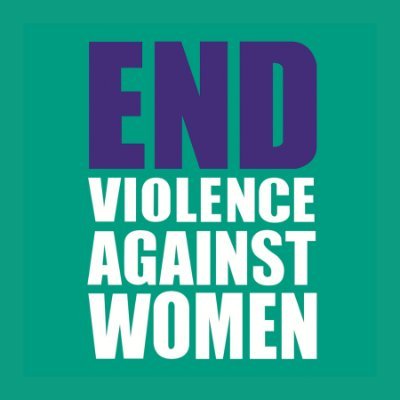‘We call on government to match its rhetoric on ending VAWG with actions that support all women’s rights – including migrant women, and black and minoritised women.’

Ahead of International Women’s Day on March 8, and to mark the one-year anniversary of Sarah Everard’s murder, calls are being made for more to be done to end violence against women and girls and to back all women’s rights.
While public awareness around violence against women and girls (VAWG) has increased a year on from Everard’s murder, little progress has actually been made, with at least 139 women having died as a result of gendered violence in 2021.
In England and Wales, 40,572 women were the victims of sexual assault in the year ending September 2021 – an increase of 13% from the previous year. This represents the highest number of sexual offences ever recorded within a 12-month period.
The lack of progress has been pinned on the issue of “awareness” not being the same as “engagement.”
As Rebecca Gill, executive director of Rosa, a grant-making charity for women’s organisations in UK, said:
“People are more aware of the issue, but they may not be engaging in the multiple ways that women and girls experience violence and abuse.
“There is a focus on ‘stranger danger’, because that makes headlines, but the everyday verbal and physical abuse which women and girls experience, continues in public spaces and in the home.”
This rational behind the lack of progress is the principal message of a new report by the End Violence Against Women coalition of 100 specialist women’s support services, researchers, activists, victim-survivors and NGOs.
A different government approach
The group is urging for a different approach to the government’s current policies in relation to stamping out violence towards women.
The report calls for more significant investment in prevention, including the launching of public campaigns and comprehensive relationships and sex education in schools.
It notes how with the murders of Sarah Everard, Bibaa Henry, Nicole Smallman, Sabina Nessa, and many others who names may not have made the headlines, 2021 sparked national conversation about violence against women. It points to the action that has been made to help keep women safe, including funding in CCTV and street lighting, alongside increased police presence in communities.
However, the EVAW report says this does not go far enough and a different strategy is required.
A new approach needs to include significant investment in prevention and addressing harmful attitudes and perpetrator behaviour.
Organisations led ‘by and for’ black and minoritised women
The group calls for major financial support for the specialist violence against women and girls sector, including organisations led ‘by and for’ black and minoritised women. Measures are required that go beyond traditional ideas of ‘public space’ and that tackle online VAWG. As is a “fundamental transformation” of the criminal justice system, the report continues.
New and amended bills contain regressive measures
It adds that the Police, Crime, Sentencing and Courts Bill, the Nationality and Borders Bill, the Judicial Review Bill and the Human Rights Act Review, contain some of the “most regressive measures of our generation” and will “exacerbate the inequalities that prevent marginalised women from seeking protection and support.
Andrea Simon, director of the End Violence Against Women Coalition (EVAW), said that for a moment in 2021, it felt as if government was listening and that there was finally an opportunity for meaningful action to end and prevent violence against women and girls – something that the EVAW movement has been working towards for generations.
“Instead, we have seen a series of superficial and short-sighted measures narrowly focused on keeping women safe on the streets, when we know there is a real need to tackle the attitudes that drive men’s violence against women. These measures have been rolled out alongside the erosion of women’s rights via the Policing Bill, the Nationality and Borders Bill, planned changes to the Human Rights Act, and other harmful pieces of policy and legislation that will further entrench inequality and leave women with little recourse to justice,” said Andrea Simon.
EVAW’s director continued that with courage and bold leadership from those from positions of power, gender-based violence and discrimination can be ended.
“What we need to see now is properly funded transformational prevention work – this means comprehensive relationships and sex education in schools, an online safety law that protects women and girls from abuse, and multi-year public campaigns to shift the attitudes that trivialise and normalise this abuse.
“We also call on government to match its rhetoric on ending VAWG with actions that support all women’s rights – including migrant women, and black and minoritised women,” Simon concluded.
Sadiq Khan launches campaign to tackle VAWG
The calls come as the Mayor of London launches a campaign to tackle VAWG. Sadiq Khan’s new campaign focuses on addressing the sexist attitudes and inappropriate behaviours exhibited by some men, in order to stop the epidemic of misogyny and violence towards women and girls.
“If we are going to truly fix the problem of violence against women and girls, we need to see a fundamental cultural shift which puts the onus of responsibility on men. It must include men calling out and choosing to reject sexism and misogyny, which if left unchecked or unchallenged can lead to abuse and violence towards women and girls,” the London Mayor said.
Gabrielle Pickard-Whitehead is a contributing editor to Left Foot Forward
Left Foot Forward doesn't have the backing of big business or billionaires. We rely on the kind and generous support of ordinary people like you.
You can support hard-hitting journalism that holds the right to account, provides a forum for debate among progressives, and covers the stories the rest of the media ignore. Donate today.



